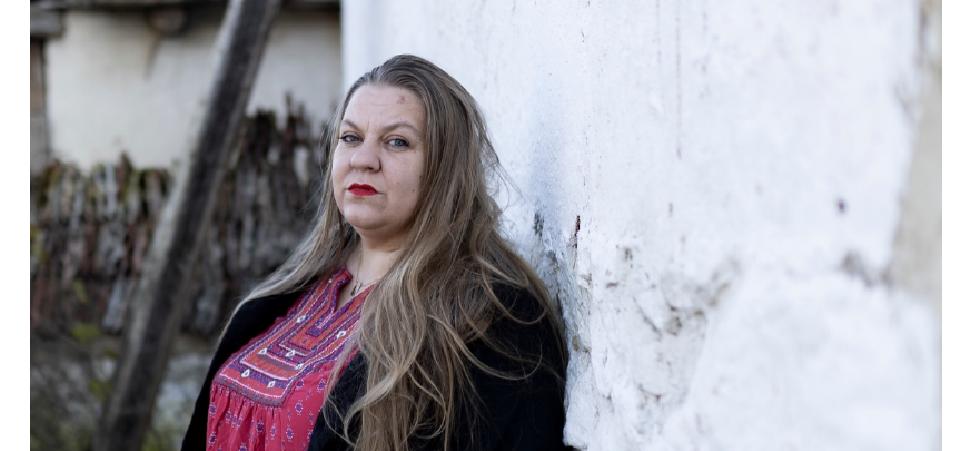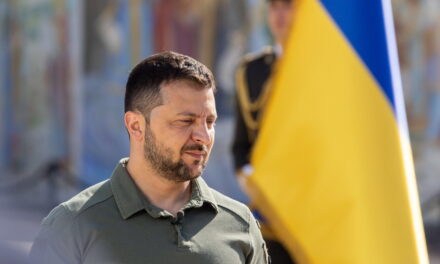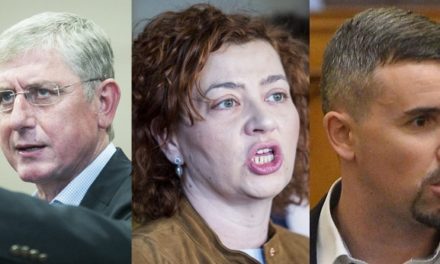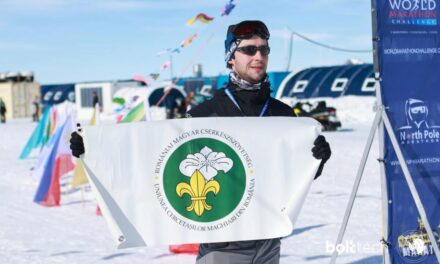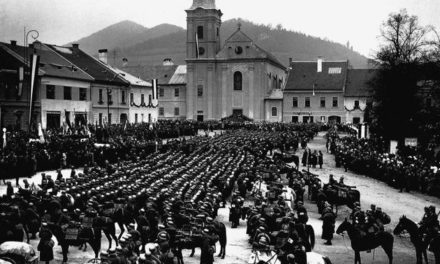Gabriella P. Lőrincz was born in 1982 in Beregszász. Poet, writer. His first volume was published in 2009 Scratches at the Intermix Publishing House in Ungvár. Since then, he has published regularly in domestic and international journals. He received the János Térey scholarship in 2020 and the István Bella award in 2022. His most recent volume, Easy Madonnas, was published in 2021. He lives with his family in Sandan, Nógrád.
- You come from Transcarpathia, you were born in Beregszasz. What was that environment like when you were a child, in the eighties?
I have very good memories of him. There were no beggars, no one lived on the street. In the Soviet Union, everyone was forced to follow a certain order. Everyone had a job and a salary, even if it was modest. All in all, my childhood is a very positive memory, until the Soviet Union collapsed. Learning was free, including higher education. When I started school, we were Octobrists, which is the equivalent of drum kit. I was no longer a pioneer, that is, a pioneer, by then the system had changed. The whole thing was a big machine. But it wasn't painful, at least as I remember it. What happened next was very ugly.
– How did you experience being a minority in the last years of the Soviet Union?
I didn't know that I didn't live in Hungary. We hadn't even heard of the Ukrainians then. Only Hungarians lived in our street. The Hungarian newspapers were published, we watched Hungarian TV. I was never hurt, I had no disadvantage from being Hungarian. The Russian language was taught very well. Ukraine became independent on August 24, 1991. Since 1994, there have been no payments, money has depreciated. They brought in an unsecured bill that was printed with watercolors. If water got on it, the inscription ran off. Unemployment came, factories ceased to exist.
At that time, the big business began, with cheap cigarettes and everything. Animal husbandry also ceased in the outskirts of the city and slowly also in the villages, because they could not buy crops. A livable situation somehow came together by the beginning of the 2010s.
– To what extent did the situation of the Hungarian minority change during the Ukrainian times?
At the beginning, there were no significant changes. What was already felt started in 2014. Transcarpathia has a very mixed composition. Jews, Ukrainians, Poles, Slovaks, Romanians, Gypsies. Church organizations, political and civil organizations were created, and a lot of things started after the regime change. Hungarian books were published. When the war started in 2014, everything changed almost in a matter of weeks. The language of the Hungarians was also attacked, not only that of the Russians, but also all minority languages.
"How did all this change the atmosphere?"
Drastically. They set them on fire in the street, for example. I lived in a house with eight apartments. The ten-year-old child of the neighbor who lives below me spat at me and said: "bitch is Hungarian". Although we were good until then. The flags and signs had to be taken down, they organized their own for the Hungarian holidays. The Petőfi statue was vandalized several times, and the monument on the Vereckei Pass was also set on fire and painted over. Obviously, this did not bother everyone, not everyone knew about it. These are my own experiences, my own feelings.
"How did you live this?"
For a Hungarian living in Hungary, all this is a distant, unknown experience. I grew up in a mixed family, among Szeklers, Ruthenians, and Hungarians, yet with a very strong sense of Hungarian nationalism. The most expensive and most beautiful language is Hungarian, this was the determining factor. Those times, when my nation was hurt, took me to extremes. I wanted to treat them the way they treated mine.
Read the full Mandiner article
Author: Ákos Győrffy
Picture: Márton Ficsor

